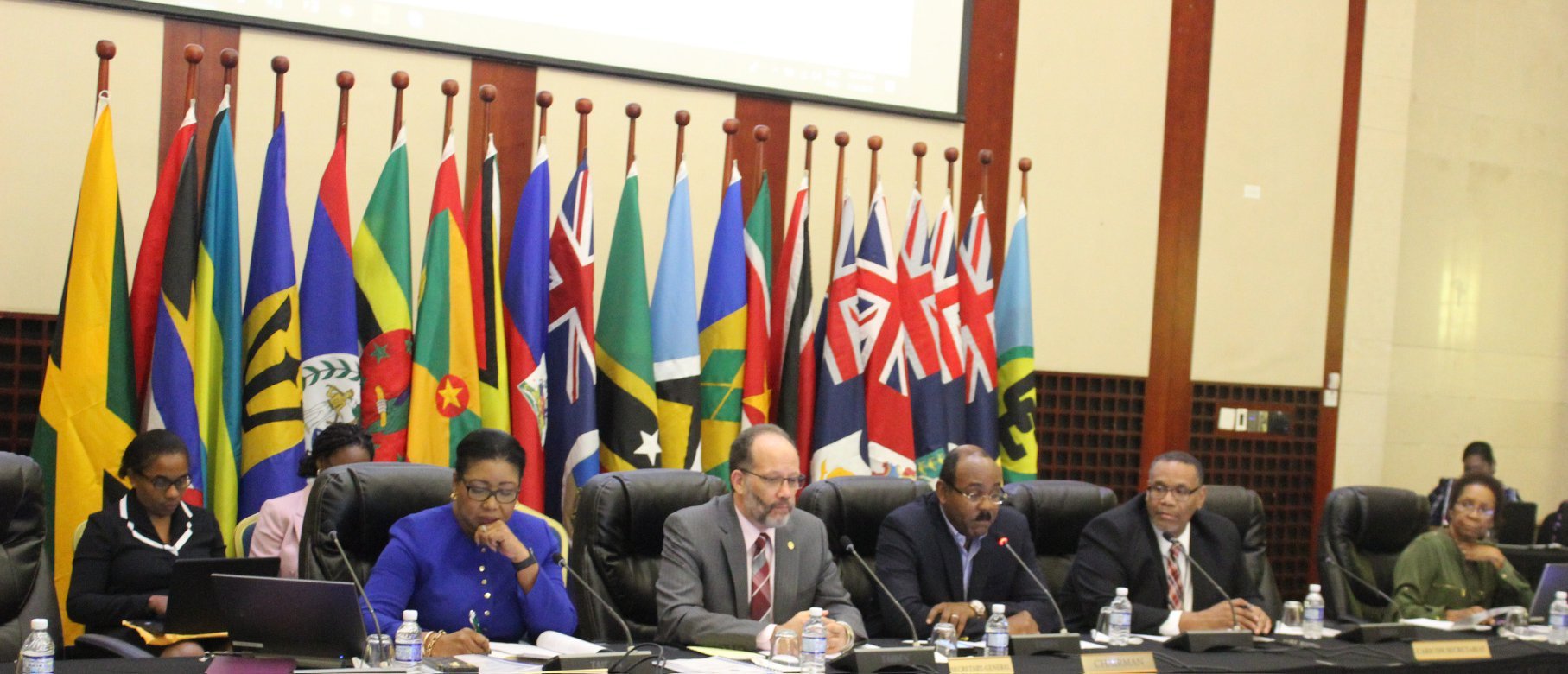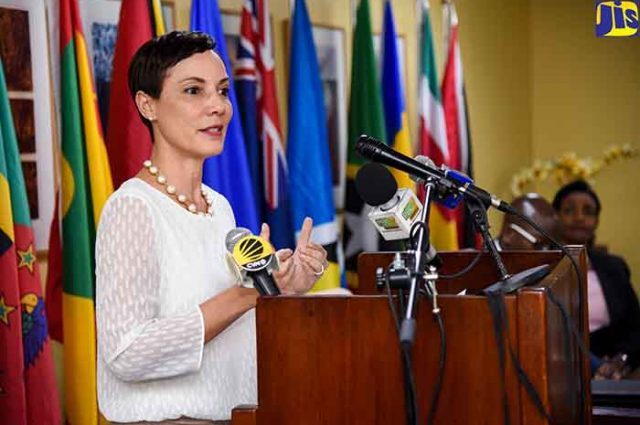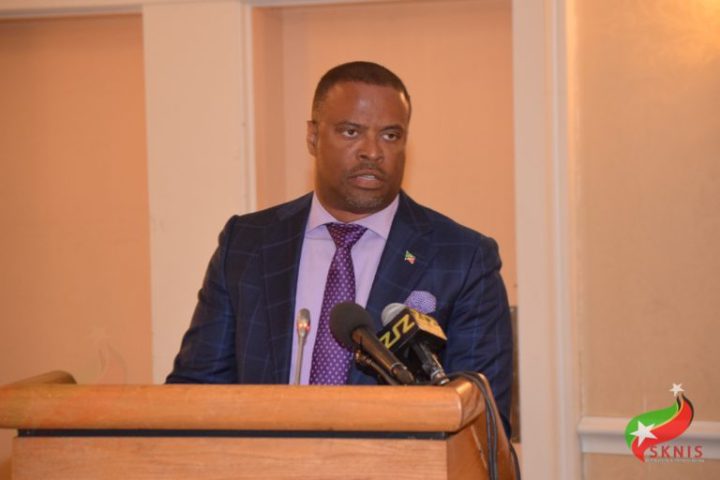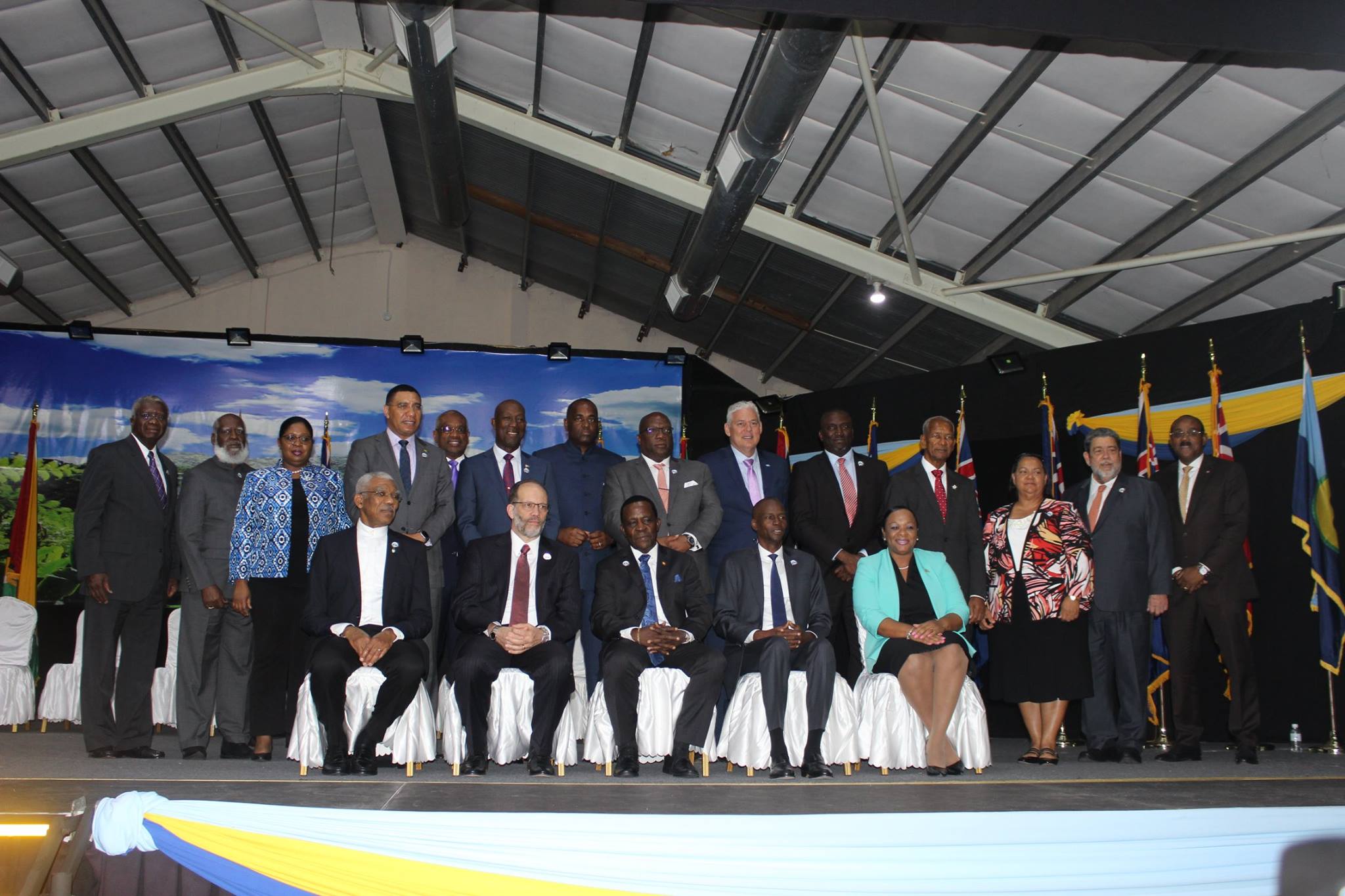When CARICOM Heads of Government meet in Georgetown next week, they will do so against the background of a number of threats to the Region's financial and economic stability.
Chief among these are the threats posed by international banks limiting or terminating their relationships with regional financial institutions, and the yet to be determined implications of the British decision to leave the European Union (EU), a key partner in the Community’s development. The BREXIT vote has sent Britain and the rest of the world into a tailspin. The pound sterling fell in value to the lowest in 30 years, and international financial markets took a downturn, as the implications hit home.
The Caribbean is not immune from the potential fallout, and economists and politicians alike are assessing the situation. The majority of CARICOM Member States were former colonies of Britain, which was a key ally of the Region within the EU.
While some have adopted a wait and see stance, confident that any domino effect will not occur in the short-term, others are predicting immediate consequences and want the CARICOM Member States to appreciate the value of regional integration and band firmly together to chart the way forward. The concerns range from a drop off in arrivals in tourist dependent Member States such as Saint Lucia and Barbados where the UK is a major source market, a decrease in development assistance, to effects on trade agreements the Region has with the EU.
Interacting with journalists in Guyana at the weekend, CARICOM Secretary-General, Ambassador Irwin LaRocque said that though the imminent breakaway was not on the agenda of the Meeting, it would undoubtedly be discussed next Tuesday and Wednesday at the Pegasus Hotel in Georgetown.
We have to, of course, be concerned because the United Kingdom is a significant player in the arrangements in the European Union in terms of a voice, that also being a Commonwealth country but a voice as well in the European Union and the fact that it is a significant contributor to the European Union and of course the budget of the European Development Fund,” the Secretary-Generals said on Saturday.
Pointing to the strength of CARICOM’s relations with both Britain and the 28-member EU, the Secretary-General said he did not anticipate any “diminishing of the relationship with the United Kingdom or with the European Union in any way at all”.
Assessing the situation shortly after the vote, Head of the Delegation of the European Union (EU) to the Eastern Caribbean Countries, OECS and CARICOM/CARIFORUM, Ambassador Mikael Barfod acknowledged that there could be some consequences for the Caribbean, such as renegotiations of trade deals with the United Kingdom (UK). Ambassador Barfod noted that the UK was a major trading partner for many CARICOM Member States.
Correspondent Banking
From Prime Ministers, many of whom are their countries’ Finance Ministers, to the heads of Regional banking institutions, the assessment of de-risking scenario is that it is unfair and the predictions about its impact on the Region are dire, and the call to action is extremely urgent.
De-risking is international banks’ withdrawal from their relationships with indigenous banks because of fears of money laundering and questionable sources of funds which would cause the international banks to receive heavy fines from their regulators. Regional banking institutions rely on such relationships in order to allow residents to conduct international financial transactions. The issue has been occupying the attention of Regional policy-makers, following signals by international banks that they are unwilling to continue carrying the business of regional banks.
Transfers of remittances, cheque payments, international trade and the facilitation of credit card settlements for local clients are among the areas that have been affected by de-risking.
“If you want to take it to the extreme, you and I will not be able to shop in a supermarket because the supermarket will not be importing the stuff we like to buy,” Deputy Governor of the Eastern Caribbean Central Bank (ECCB), Trevor Brathwaite told the Antigua Observer recently. “You and I will not even be able to buy shoes and clothes … cars, tyres and parts.”
The Caribbean Development Bank (CDB) quoted a November World Bank survey as saying that about 75 per cent of international banks have experienced a reduction in correspondent banking services with the Caribbean being the worst affected.
Reports are that eight financial institutions in Barbados, about seven in Jamaica and five in Belize and others in Antigua and Barbuda, Montserrat and other Member States have been affected by a termination of or restriction in correspondent banking relationship.
The Heads of Government, at their Intersessional Meeting held in February, decided to establish a high level advocacy team headed by Antigua and Barbuda Prime Minister, the Hon. Gaston Browne. Prime Minister Browne’s mission is to represent the Community’s interest at all levels, including with the United Nations (UN), the World Trade Organisation (WTO), and the United States Congress. A Meeting has since been held with US Treasury and State Department officials in April 2016 and the matter was also discussed with the UK Foreign Secretary.
A report on the UN-Caribbean Public-Private Dialogue on Correspondent Banking held in Jamaica, also in April, was presented to the Meeting of the Council for Trade and Economic Development (COTED) held in Georgetown later in the month. The Public-Private Dialogue brought together bankers in both the onshore and offshore sectors from the US and the Caribbean, as well as central bankers and government officials from both parties. Trade Ministers at the COTED Meeting reiterated that the correspondent banking issue was a troubling one that was not limited to pure banking, but had trade and economic implications, and had the potential to lead to an upsurge in illegalities. They also underscored that the threat was being made even as all CARICOM Member States were compliant with all international financial regulations. The Ministers agreed that a comprehensive consistent and diplomatic offensive should be launched.
The Trade Ministers also supported a Declaration of the Permanent Council of the Organisation of American States (OAS) that was tabled for adoption 30 March, 2016, at a Special Meeting summoned by the then Chair of the Permanent Council, Ambassador Ronald Sanders. The Declaration addressed the severe threat posed by the severing of Correspondent Banking relationships to the economic growth, social development and political stability of small economies. The Declaration also called for urgent action to ensure that banking regulations designed to foster transparency and accountability and prevent money laundering and terrorism financing do not create financial exclusion and economic decline of small economies by cutting off their access to international correspondent banking.
The Heads know that there will be no easy solution to this matter.
One solution proffered by Prime Minister Dean Barrow of Belize was the pooling of business to achieve “critical mass” and to make it worthwhile for the correspondent banks which are weighing risks and returns. The governors of Regional Central Banks, and the Committee of Ministers of Finance on Correspondent Banking, that the Heads of Government have established, will consider the modalities of that recommendation.
Further action on correspondent banking will be determined by the reports presented to the Heads of Government during the two-day Conference.
See other articles at: http://caricom.org/cochog






